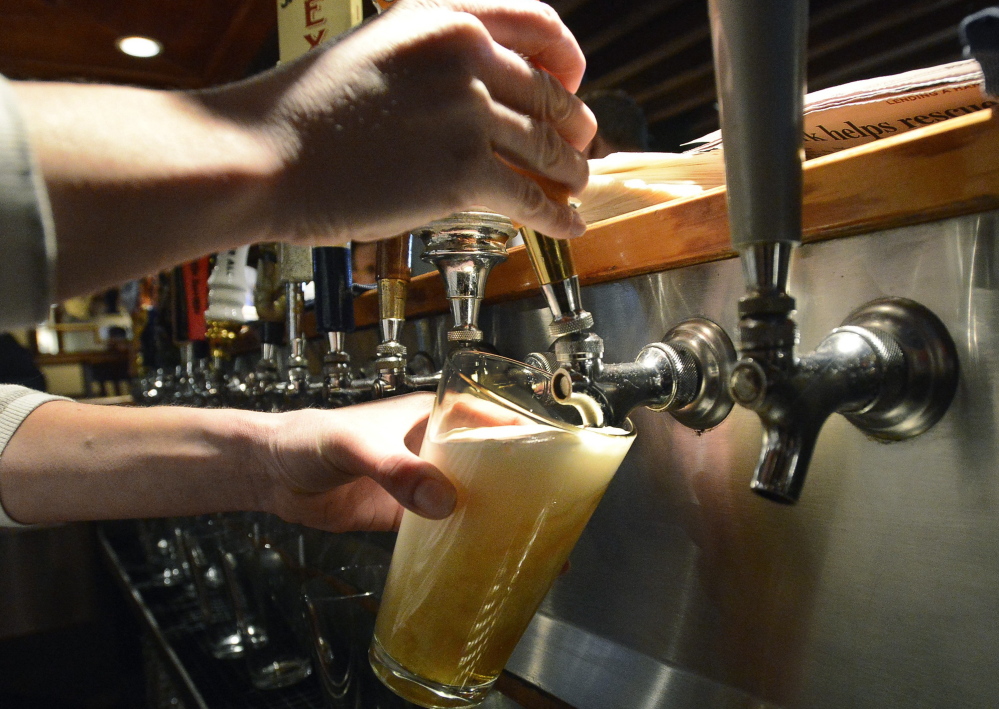In New York City, bars close at 4 a.m. Last call in Boston is at 2 a.m. It’s 2 a.m. in Ontario as well, and 3 a.m. for our neighbors in Quebec.
So it must come as a surprise to tourists from those regions when the bell is rung in Maine before the clock strikes 1. For some vacationers – and young residents, too – it must feel as if their night is being cut a little short.
Late-night revelry is not what draws people to Maine. But it is, for some, part of a good vacation.
Extending the hours during which bars are allowed to serve, as proposed last week by Gov. LePage, could be a boost to the communities that depend on making every buck they can from the summer hordes, as long as those communities are willing to deal with any of the undesirable consequences that may occur.
LePage’s late-session bill, L.D. 1436, would allow restaurants and bars to serve alcohol until 2 a.m. through Columbus Day this year only, providing a season’s worth of experience to decide if that extra revenue is worth any side effects.
It doesn’t appear, however, that the bill would allow individual communities to opt out of the later hours. That should change – a late nightlife is not for every community.
But as long as it is left up to the cities and towns, there is little downside to giving extended hours a shot.
While it may seem obvious that longer hours at the bar mean more alcohol-related problems on the road and elsewhere, that is not necessarily the case. States, provinces and individual cities have been experimenting with different last-call times for years, but the ultimate impact is the subject of debate.
The best research on the matter – from the cities of Windsor and London, Ontario, which extended bar closing hours from 1 a.m. to 2 a.m. in 1996 – suggests that while alcohol-related offenses and motor vehicle fatalities were pushed slightly later in the night, there was little overall change.
Still, that is far from conclusive, and the real impact in Maine may vary, and may vary within the state from community to community or region to region.
Will extending the hours, for instance, allow people to drink more, and then push them out on the streets later? Or will it allow for a more gradual dispersion of the late-night crowd over time?
Will later nights in cities such as Portland, Bangor and Waterville place a burden on outlying towns and the departments that police them? What about the people who live near the heavily frequented bars?
Does it make a difference whether there is a high concentration of bars in an area, or just a few?
And what does it mean for the bartenders and servers?
A pilot period would help answer those questions, and determine where and when a permanent change makes sense.
Send questions/comments to the editors.



Success. Please wait for the page to reload. If the page does not reload within 5 seconds, please refresh the page.
Enter your email and password to access comments.
Hi, to comment on stories you must . This profile is in addition to your subscription and website login.
Already have a commenting profile? .
Invalid username/password.
Please check your email to confirm and complete your registration.
Only subscribers are eligible to post comments. Please subscribe or login first for digital access. Here’s why.
Use the form below to reset your password. When you've submitted your account email, we will send an email with a reset code.